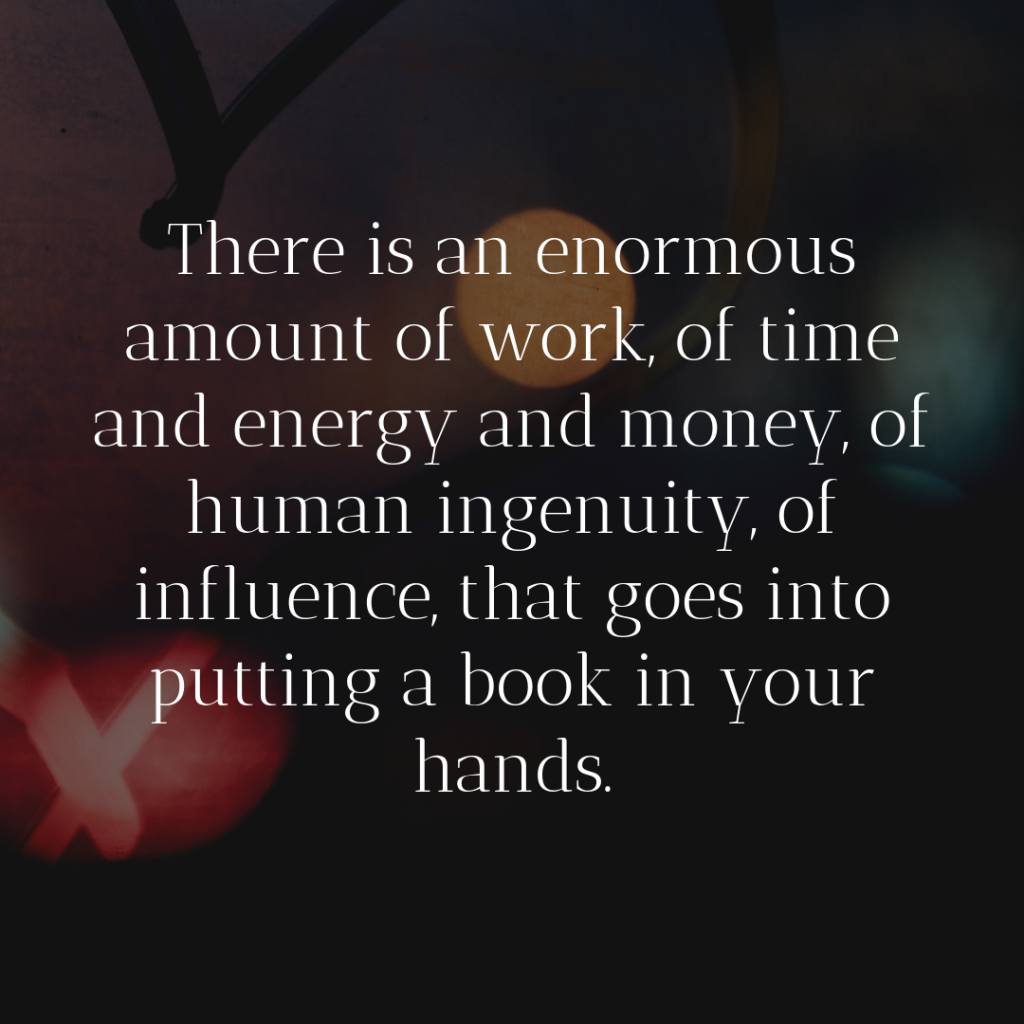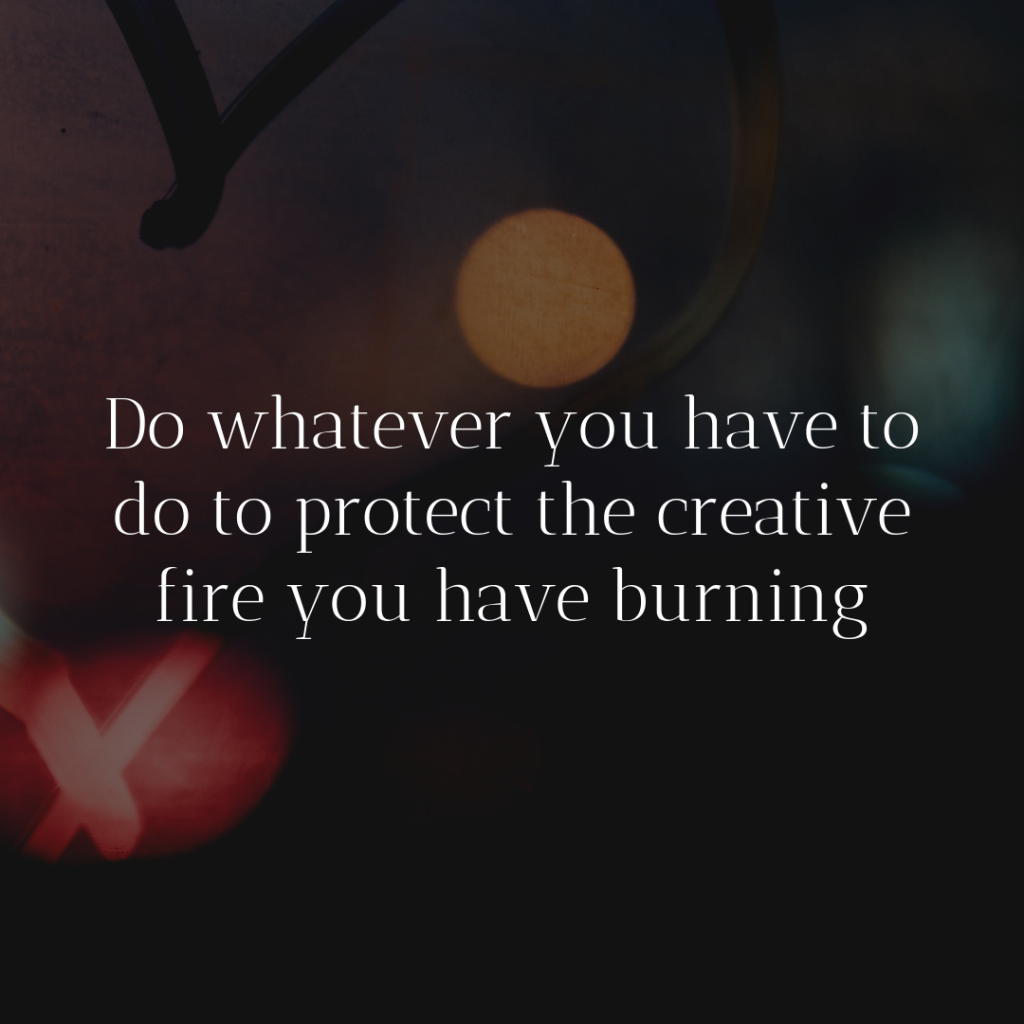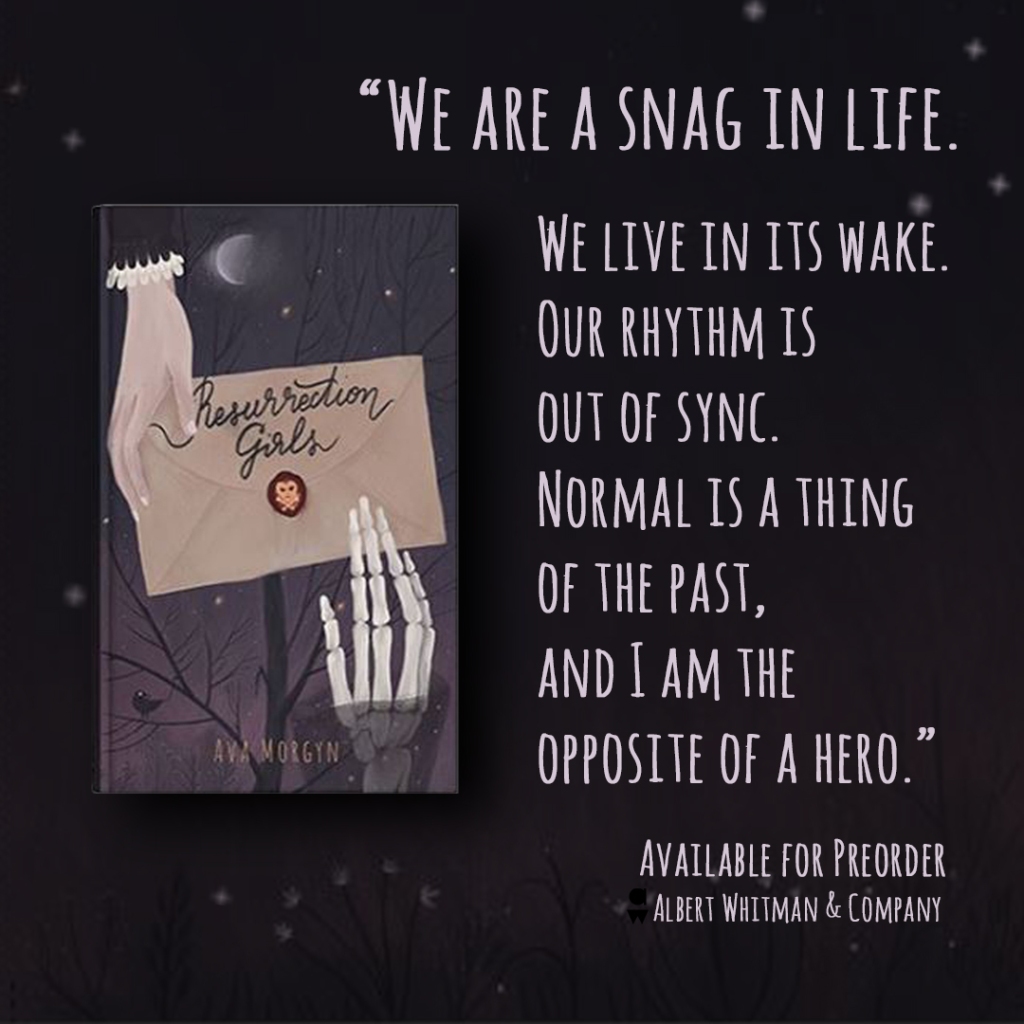
Hello everyone!
Today I am excited to present to you an interview session with Ava Morgyn, who is the writer of “Resurrection Girls.” Ava will share some insights about her influences, her inspiration, and her writing process.
1. What are some of your favourite novels?
I’ve always been a giant fan of The Handmaid’s Tale, Mists of Avalon, The Last Unicorn, Confederacy of Dunces, Fear and Loathing in Las Vegas, Wuthering Heights, and The Alchemist. But if we’re talking more current YA material, I love Chime, Born Wicked, All the Truth That’s In Me, Vita Nostra, Wild Beauty, and The Wise and the Wicked. I’m kind of all over the place in my reading. And I never manage to read nearly as many books as I’d like to.
2. Which authors have influenced you the most?

Margaret Atwood had a profound influence on me at a very early age. I credit her with making me aware of voice, which is a very important aspect of my writing and has a lot to do with the books I choose to read and fall in love with. Paulo Coelho has meant a lot to me as well. I love the way he weaves wisdom and spirit into story. He raises the art of storytelling to high magic. In general, I’m always touched by authors who aren’t afraid to explore dark subjects, and who provide me with rich, multidimensional characters that are never all good or all bad.
3. Tell me about your story and what inspired you to write. What was the inspiration for Resurrection Girls?
Resurrection Girls was inspired by my own experiences of grief. At the time I wrote it, I hadn’t lost a child, though I have since. But I had lost my parents, and I’d grappled with my own grief and experiences of death and loss over the years. And I’d watched the way other people chose to deal or not deal with their grief, and how that impacted their lives and choices.
I’m also always influenced by myth and the ways in which deep and profound meaning is drawn from seemingly mundane and ordinary experiences. So, I wanted to write a story that might seem ordinary on the surface—ordinary family, ordinary grief, ordinary loss—and infuse it with the extraordinary. Loss and grief are universal experiences. They’re beyond common. And yet, there’s really nothing ordinary about them. They are extraordinarily powerful. I think Resurrection Girls is at the crux of that enigma.
4. I love the title, “Resurrection Girls,” which has a catchy ring to it. How did you come up with this title?
The title for Resurrection Girls came to me in the writing. For the longest time it was simply labeled “novel” in my documents because I didn’t have a title for it. And that was the first time I hadn’t titled something before I began writing it. But I started writing Resurrection Girls without really knowing what I was writing yet, and I couldn’t give it a title until I had a handle on what the material actually was.
There is a scene in the novel where Kara and Olivia are deciding on a pseudonym for themselves, a way to sign their letters to the inmates they are writing together. When I finished writing that scene, I knew that the name they came up with—Resurrection Girls—would be the name of the novel. When I look back at the work now, that title is eerily on point at a variety of levels. Yes, it’s the pen name they choose for themselves, but it’s also who they are to each other, to Olivia’s family, even to Prescott, and in both a literal and deeper way, it’s who they both embody in their character arcs. I hope it’s also who they are to the readers.
5. Were you published through the traditional or self-publishing route? How did you decide between the two? Tell us about your experience with publishing.

Resurrection Girls is being published via traditional publishing. I have always been dedicated to the process of traditional publishing. I have, in the past, experienced both indie publishing on a very small scale and self-publishing, but it was never fulfilling to me. I like the experience of working with an agent, with a team of editors and publicists at a publishing house. I am committed to playing on a larger stage whenever possible. And I prefer to focus on my writing and allow someone else to represent the work, or edit it, or create the cover art, and so on. I think the novel gets the best of each that way. In short, I have no desire to wear all the hats. Some people really get something out of controlling the process at every level, but that’s just not me. And watching this novel move through all its iterations—first with my agent and then with editors—I can attest to how much all those hands on the work have polished it, have really made it shine. I respect that process very much. There is an enormous amount of work, of time and energy and money, of human ingenuity, of influence, that goes into putting a book in your hands. I have no desire to curtail or impose upon that. What you’re holding is art. I wouldn’t want to give you anything less.
Of course, commitment to that process comes with its fair share of rejection and disappointment and failure. But as painful as those experiences can be, I don’t want to bypass my own growth by avoiding them. I am a better writer and a better human being because of those experiences. And you are getting a better finished product as a result. It’s not for everyone. I acknowledge that. But it has definitely been the right path for me.
6. Do you have a job other than writing? If so, what are your tips for juggling another job and writing?

I do and have worked other jobs while writing and raising a family. It’s a lot to manage. I think you have to know your creative process and protect it, usually at a cost, or else the work simply won’t survive or reach its potential. We all have a limited amount of energy to give in any given day. If you’re going to hold space for your creative work—whatever that is—then you have to know and respect your limitations. You have to set your life and your schedule up accordingly. And the bottom line is, you are going to have to make sacrifices. For me, it’s meant that I’ve mostly been able to work only part-time, and I’ve never been able to build a full career outside of writing. But for another person who maybe isn’t juggling a family as well, a full-time career in addition to their writing might be possible. Or for another person who has greater reserves of energy to work with every day, they might be able to manage all three.
Everyone is different, but everyone is limited. I have definitely heaped my sacrifices at the altar of this pursuit. And I don’t regret a single one. But it doesn’t necessarily make things easy. Then again, what’s the point of easy anyway? How much good, how much transformation or revelation or revolution has ever come out of easy? So, I would say, do whatever you have to do to protect the creative fire you have burning, and adjust your expectations. If you don’t expect it to be easy, then you won’t be so shocked when it’s not.
7. Any tips for aspiring writers?
Talent is just the beginning. You need so much more than that if you’re going to walk this road—education, experience, mentoring, doggedness, confidence, etc. Know that up front and don’t be shy about going after what you need to succeed. Above all, persist. There will be rejection. There will be failure. That is part of it. If you can’t handle that, then you don’t want this as bad as you think you do. And of course, write. You become a writer by writing. That’s it. So keep writing. You will get better. You will learn. Your craft will grow. Your voice will develop. Your readers will show up. But only, only if you keep writing. And that should be your focus—the work, and the development of yourself as the creator of the work. If your focus is anything else—if it’s money or attention or prestige or whatever else you think writing will bring you—then you are going to end up sorely disappointed. There are lots of other, better, more efficient and less painful ways to pursue those things than art, whether it’s writing, painting, music, acting, dance, etc. Pick one of them instead.

About Resurrection Girls

Olivia Foster hasn’t felt alive since her little brother drowned in the backyard pool three years ago. Then Kara Hallas moves in across the street with her mother and grandmother, and Olivia is immediately drawn to these three generations of women. Kara is particularly intoxicating, so much so that Olivia not only comes to accept Kara’s morbid habit of writing to men on death row, she helps her do it. They sign their letters as the Resurrection Girls.
But as Kara’s friendship pulls Olivia out of the dark fog she’s been living in, Olivia realizes that a different kind of darkness taints the otherwise lively Hallas women—an impulse that is strange, magical, and possibly deadly.
In the beginning, the dead are always with you. It’s almost as if they aren’t even gone, as though you could round any given corner and see them there, waiting. For months after Robby died, I heard his voice, his laughter catching in his throat, the sound of his footfalls down the long hall upstairs. I could feel his towheaded locks soft against the pads of my fingers still, and imagine his quiet breathing in the night. It was all there, floating around me, able to be summoned forward at any given moment. Like a balloon, I had Robby’s memory, his soul, on a string.
But that only lasts as long as the pain is fresh. You bleed memories for a while. And then one day you find you’ve bled them all out. And the sharp sting of loss has waned into a dull ache.
It’s the little things that go first. The way light would play across his face at a certain angle. The expression he made when he pouted. The smell of him in the morning. You go to summon some detail up from the depths and it’s no longer there. The dead drift away. And then even the dull ache disappears, and only numbness holds in its place. You stop trying to recall details because the futility of it is worse than the grief. It’s no longer the loss of the person you mourn, but the loss of the haunt. And the absence is all that is left when you reach for your pain.
Resurrection Girls releases October 1, 2019. Pre-order at Amazon; Barnes and Noble; IndieBound

About the Writer

Ava Morgyn is a native Texan and a lover of crystals, tarot, and powerful women with bad reputations. She studied English writing and rhetoric at St. Edward’s University in Austin and currently resides with her family in Houston, where she lives surrounded by books and rocks and writes a blog on child loss, forloveofevelyn.com.
Author Links: Goodreads / Amazon / B&N / Twitter / Facebook / Instagram / Avamorgyn.com




Leave a comment